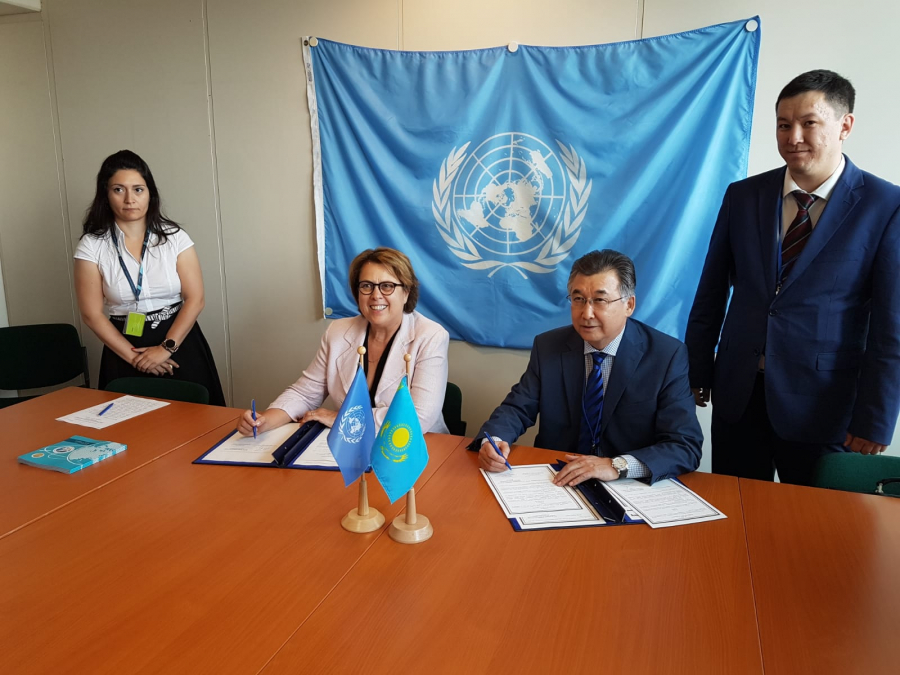NUR-SULTAN – Kazakhstan’s Ministry of Digital Development, Innovations and Aerospace Industry signed a memorandum of understanding on the use of space information and technology to manage disaster relief and development with the United Nations during the recent session of the UN Committee on the Peaceful Uses of Outer Space (UNCOPUOS) in Vienna, Austria.
The parties agreed to work to cooperate in the use of space-based information for disaster management and to achieve the UN’s Sustainable Development Goals (SDGs). They also plan to promote innovation in the space sector, work together on capacity-building activities to improve the skills of scientists, students and other specialists, as well as to facilitate their participation in joint research activities and projects.
“UNOOSA [the UN Office for Outer Space Affairs] is proud to have signed this memorandum of understanding with the Ministry of the Republic of Kazakhstan, a country with an illustrious tradition in enabling space exploration and innovation. Together, we will promote further innovation in the sector and we will help humanity leverage the full potential of space science and applications, which keeps growing every day, for fostering sustainable development,” said UNOOSA Director Simonetta Di Pippo.
Space-based technologies can remotely predict disasters and provide information and early warnings for models and systems. The use of these technologies could help minimise the loss of life and property resulting from earthquakes, hurricanes, floods, landslides and wildfires.
“This memorandum will be a good basis for the development of cooperation between the Ministry of Digital Development, Innovations and Aerospace Industry of the Republic of Kazakhstan and the UN in the field of space activities,” said Kazakh Vice Minister of Digital Development, Innovations and Aerospace Industry Marat Nurguzhin, who headed Nur-Sultan’s delegation at the session.
With this memorandum, the United Nations Platform for Space-based Information for Disaster Management and Emergency Response (UN-SPIDER) programme is a step closer to ensuring access to, and developing the capacity to use, all types of space-based information to support the full disaster management cycle in all countries. The UN General Assembly established UN-SPIDER in 2006.
The Kazakh delegation also held a number of bilateral meetings, speaking with the heads of the space agencies of the United Arab Emirates, Japan and Peru and the heads of the Royal Jordan Geographic Centre and the Asia-Pacific Space Cooperation Organisation.
The vice minister invited session participants and heads of space agencies to take part in the Space Days in Kazakhstan forum that will be held in Nur-Sultan in October.
The UN General Assembly set up UNCOPUOS in 1959 to guide the exploration and use of space to establish peace, security and development. The committee reviews international cooperation in the peaceful uses of outer space, studying space-related activities that could be undertaken by the United Nations, encouraging space research programmes and studying legal problems arising from the exploration of outer space. International cooperation in space exploration and the use of space technology applications to meet global development goals are discussed in the committee every year.

